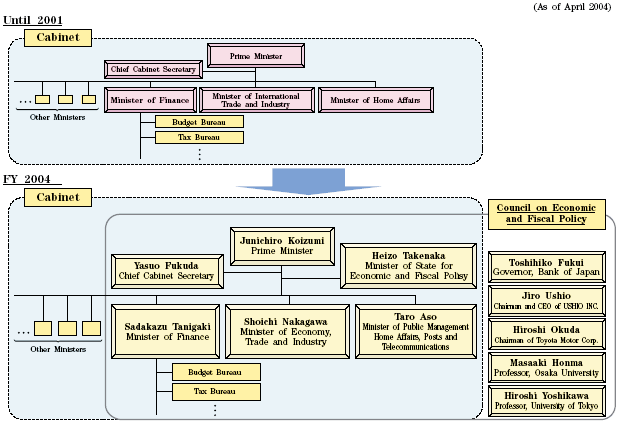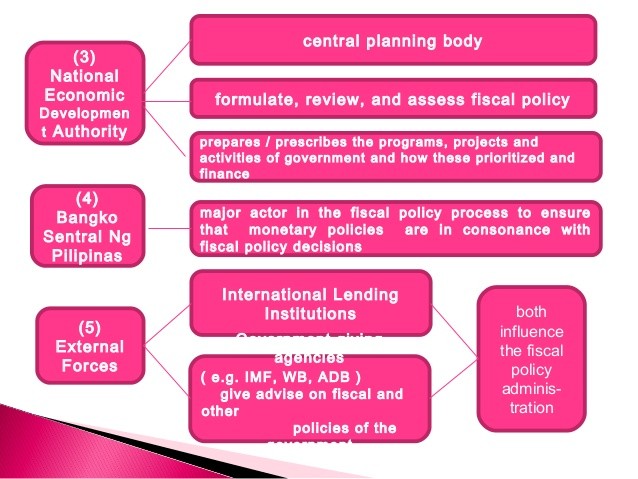Formulating Fiscal Policy
Post on: 16 Март, 2015 No Comment

Formulating
Fiscal Policy
Fiscal policy is the domain of Congress, which has sole authority over government spending and taxation. This involves a far wider range of issues than does monetary policy which is basically one-dimensional, namely the selection and control of the short-term interest rate. Both fiscal and monetary policy should have the same ultimate objective — full employment and real economic growth. But fiscal policy in the U.S. is often a matter of special interest politics rather than a coherent program. While both must work together to achieve the basic goal, unfortunately they seldom do.
Financing Government Programs
All government spending is financed with revenues from taxes or borrowing. It is not always clear which of these two sources of funds is the better choice for a particular program. As a general rule, government investment in infrastructure such as the transportation system is best financed with borrowed funds. This helps to spread the costs over the life of the benefits. On the other hand, government salaries, subsidies of various kinds, and transfer payments for social benefits which constitutes a major portion of the budget, are usually best funded with tax revenues.
The Crowding Out Hypothesis
A commonly heard criticism of deficit spending, is that it crowds out private sector investment. It is argued that government borrowing tends to increase interest rates, or that it consumes loanable funds that would otherwise be available for private enterprise. There is no significant correlation between deficit spending and real interest rates. And what is often overlooked is that all borrowing is promptly spent back into the economy.
Borrowing and taxing redistribute liquidity, but do not reduce the total of bank deposits or drain dollars from the private sector. Crowding out in the financial sense is largely non-existent. Real crowding out can occur when the government calls on real resources currently in demand by the private sector, but that usually happens only in war time.
Taxing Guidelines
Taxes have an important effect that differs from borrowing. Borrowing is based on voluntary lending according to investment preferences of the private sector. Taxes are extracted according to formulas set in the tax code by Congress. The tax system should minimize the distortions and inefficiencies that result from high marginal rates and inordinate exemptions, deductions, and loop holes that shrink the base subject to taxation. Under conditions of slack employment, increases in taxes or cuts in desirable outlays with the intent to achieve deficit goals should be avoided. They are almost always counterproductive.
Monetary Policy Coordination

In general, increased taxes on the factors of production — labor, land, and natural resources — will cause prices to rise. If the monetary authority then raises interest rates to counter the inflation by curbing aggregate demand, it will be more difficult to achieve a high level of employment. If the goal is maximum employment and output, as it should be, the monetary authority should lower interest rates when increased taxes act to reduce supply or raise costs. That may cause higher prices in some sectors, but result in less reduction in total output and employment which is what counts most.
For sustained growth, there needs to be a monetary and fiscal policy that promotes growth. That means keeping money and credit as easy as possible. There is no excuse for allowing fears of inflation in a slack economy to keep real interest rates high and credit tight.
Fiscal Policy and Private Sector Wealth
Fiscal policy should enable the public to acquire sufficient net financial wealth, broadly distributed, to generate the spending needed to keep the economy prosperous. A major part of that wealth consists of the financial liabilities of the government, mainly Treasury securities. That means in a healthy economy both national debt and GDP should on average grow together in a roughly stable debt/GDP ratio.
In the words of Walter Mead, writing in 1993 for the Los Angeles Times: The national debt is no doubt a terrible thing. One day it will ruin us all. Everybody says it, so it must be true. But it is 300 years old and it hasnt ruined us yet. On the contrary, sinking deeper into debt, Britain and then the United States created the richest, freest, and most dynamic societies the world has ever known. These two feckless debtors beat back tyrants like Napoleon and Hitler. They settled continents, created new technologies, and flew to the moon.














